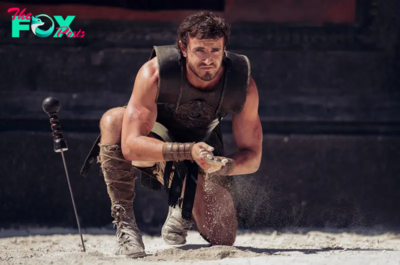Entertainment
3 Body Problem Star Alex Sharp on His Character’s Poignant Decision
Warning: This post contains spoilers for 3 Body Problem.
Less than seven episodes into 3 Body Problem, Will Downing is already dead. At least in the sense that his body is no longer living. His brain, however, still has a long journey ahead of it.
Played by Alex Sharp (The Trial of the Chicago 7, To the Bone), Will may not immediately stand out as the most interesting or essential member of the tight-knit group of scientists dubbed the Oxford Five—Will, Jin Cheng (Jess Hong), Saul Durand (Jovan Adepo), Auggie Salazar (Eiza González), and Jack Rooney (John Bradley). But his story is one that sticks with you after the final credits roll.
Created by Game of Thrones showrunners David Benioff and D.B. Weiss and True Blood's Alexander Woo, 3 Body Problem, now streaming on Netflix, follows the Oxford Five as they are thrown headfirst into humanity's fight for survival against an encroaching race of technologically hyper-advanced aliens known as the San-Ti. The eight-episode season is largely adapted from the first book in Chinese author Liu Cixin’s acclaimed Remembrance of Earth's Past book trilogy, The Three-Body Problem. But it also draws on certain plot points and characters—like the one on whom Will is based—from the series' second and third books, The Dark Forest and Death's End, to tie the story together.
After learning that he has stage four pancreatic cancer—and likely only months to live—in the second episode, Will spends much of the season's run trying to come to terms with his imminent death. During this time, he is faced with a potentially world-saving choice: whether or not to end his life early so his cryogenically frozen brain can be sent into space to meet the incoming San-Ti fleet as part of Jin's Staircase Project initiative.
TIME spoke with Sharp about Will's role in the story, his enduring love for Jin, and his decision to make the ultimate sacrifice.
Read More: Netflix’s 3 Body Problem Transforms a Dense Sci-Fi Novel Into a Smart, Gripping Thriller
TIME: What drew you to this show and this character?
Sharp: I read the script before I read the books. And when you hear Alex Woo and David Benioff and Dan Weiss, they're masterful, big storytellers. So I was excited by that. But then, of course, it's always about the quality of the writing and the character. It's a question of do I want to spend over a year getting as close to the psychology of this character as possible? So I read the script and I was really taken with Will. I thought he was, especially in a time of quite verbose heroes, very quietly heroic. He struggles with very relatable things that I also struggle with, like confidence and ambition. But there were also a lot of things about what he was going through that I didn't relate to at all, which are always the more exciting elements. You kind of get a thrill from reading that and thinking, "I don't know how I would do that." And then you get to go on a cool discovery process of how to connect to that and make it real.
What was your experience reading the books?
The books are very singular. If I can squeeze a scientific pun in there, they're rhetorically a singularity. I was blown away by the writing and by the breadth of some of the concepts the author was tackling—both in a physics sense and an imaginative sense. That he was able to communicate all that in an emotionally effective way just stunned me as a reader.
The character on whom Will is based is part of the third book rather than the first. How do you think the show benefits from introducing his story arc earlier on?
Across those books, a lot of the characters not only don't interact with each other, they don't even know of each other's existence. The way that David, Dan, and Alex wove it together, which I think is a very good idea for a television show, is to put a lot of the characters in the same place. Also the books jump around a lot in time, so to look at what from the third book could be drawn out through the whole series makes a lot of sense.
Will is one of the Oxford Five but is sort of removed from the science of it all until the end of the season. What was it like to play a character dealing with such human problems in the midst of all this otherworldly chaos?
I sometimes kind of forgot what show I was in. I would be on set for a haircut or something and I'd catch a glimpse of a mega, intergalactic type set piece and I'd be like, what show is that? Then I'd see 3 Body Problem and I'd be like, oh right, I'm in a massive sci-fi show. But I tried to block a lot of that out because it just wasn't helpful to me in the portrayal of Will. I kind of felt like I was making an independent movie with a very stretched out, bizarre schedule. It's a very intimate story about a man who loves a woman immeasurably and who's facing his own mortality and how that changes his spiritual and psychological state. What defines him is how he reacts to these circumstances. And if the season of television we've made is about looking at humanity as almost a singular organism responding to an existential threat, Will felt to me like the symbolic representation of that on an individual level.
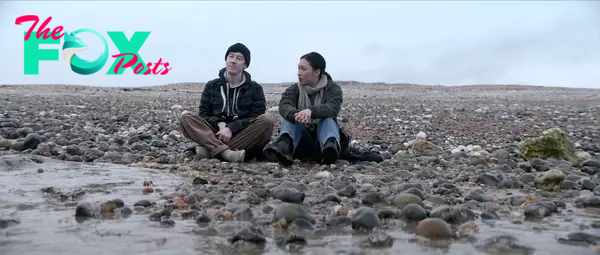
Will’s actions seem to be almost entirely driven by his love for Jin, but he can’t bring himself to share his feelings with her. Can you talk a little bit about that dynamic?
On one hand, he can be looked at as quite lacking in self-confidence and having low self-esteem. But I also think he can be looked at as having quite a lot of emotional maturity. There's a great scene where he's convinced by his two friends that, you've not got long left, just go to London and tell her. He knows the thing that brings her the most joy is the ferocious pursuit of technological scientific advancement and he doesn't want to mess with that—against his own personal interests. But then there's this one other piece of him that's like, f-ck this other guy, go there, show up with flowers, and be like, "I haven't got long. I love you. I've always loved you."
So he makes this journey when he's quite close to the end and it's very physically and emotionally painful to Travel all that way. And he gets there and sees her with Raj and she seems happy and he's heartbroken. He was sort of made by his friends to hope there was a chance. But there's an emotional maturity to his acceptance that she's not in the place to receive that, even though he wants to tell her he loves her. So then he goes about trying to just do beautiful things for her anonymously, because he doesn't want to put pressure on her. He knows that she needs Auggie to advance her work, so he convinces Auggie to go and work with her. And he buys her the star. And then the brain, the sacrifice of a physical piece of him when he's going to die anyways, is yet another way that he can love her in a way that benefits her and makes her happy. I thought it was really beautiful.
The scene where Saul is describing all the horrible things that could happen to Will if the San-Ti get ahold of his brain really stuck with me. What is Will’s mindset at that moment in time?
Well, he's going to die. Not necessarily tomorrow, when he's doing it. So he is giving up some life. But at the top of the scene, he's 100% made up his mind and then Saul does start to get through to him, because floating through space semi-consciously or consciously for eternity is more terrifying than death. As are some of Saul's points about what [the San-Ti] could do to him. The unknown for human beings is always the most terrifying and this is about as unknown as it can get.
But there was something Dan Weiss said that really changed the way I played the scene. I always had a slight amount of facial hair playing Will and Dan came in and said, "I really want you to go to hair and makeup and shave all your facial hair off." And I was like, "Why?" And he was like, "I just think you need to be as clean shaven as you were when you came into this world for when you go out of it." It was a gut instinct he'd had. And there was something about hearing him say his reason for it that then when I was playing the scene, I felt like a scared little boy. Which is so true of someone's life, because aging is like becoming a child again in a lot of ways. So that was quite profound.
Despite the seemingly dire situation that humanity is in, the season still ends on a hopeful note. Did you find that ending satisfying?
This is the beginning of the story. And I know, not just from reading the books, but speaking to David and Dan, where it would go and what elements of the books are to come if we get more seasons. And it's very exciting. This is really trying to go where television hasn't gone before. So I found the metaphor of the bugs to be very beautiful. It made me want to be able to click on Episode 1 of Season 2. And I was like, damn, I can't do that.
-

 Entertainment4h ago
Entertainment4h ago3 Completely different Kinds of TV Appearing Roles
-

 Entertainment4h ago
Entertainment4h agoAmerica On CoffeeWe’re simply inviting you to take a timeout into the rhythmic ambiance of our breakfast, brunch and/or espresso alternatives. We’re comfortable everytime you cease by.SYRUPING UP YOUR VERY OWN COFFEE FLAVORS
-
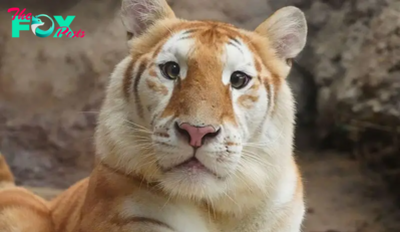
 Entertainment5h ago
Entertainment5h agoMeet Ava, the Golden Tiger Cub in Thailand Set to Be the Next Cute Viral Sensation
-
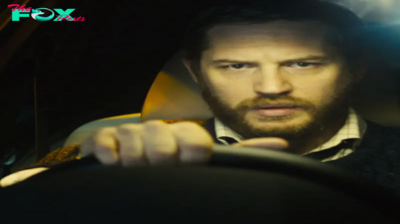
 Entertainment5h ago
Entertainment5h agoBest Tom Hardy Movies that Are Must-Watch
-
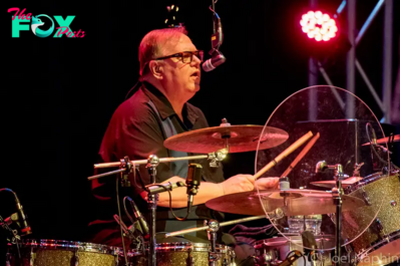
 Entertainment10h ago
Entertainment10h agoThe Smithereens with John Hampson – West Herr Riviera Theatre – North Tonawanda, NY – November 20, 2024
-

 Entertainment15h ago
Entertainment15h agoAmerica On CoffeeWe’re simply inviting you to take a timeout into the rhythmic ambiance of our breakfast, brunch and/or espresso alternatives. We’re comfortable everytime you cease by.Vacation Espresso Cocktail
-
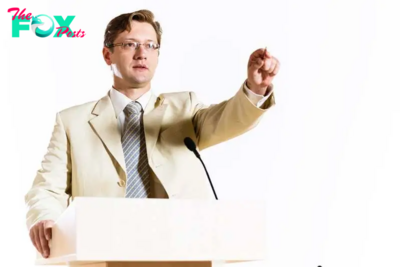
 Entertainment15h ago
Entertainment15h ago12 Methods to Command a Stage
-

 Entertainment16h ago
Entertainment16h agoBeyonce to Headline Halftime Show During NFL Christmas Game
